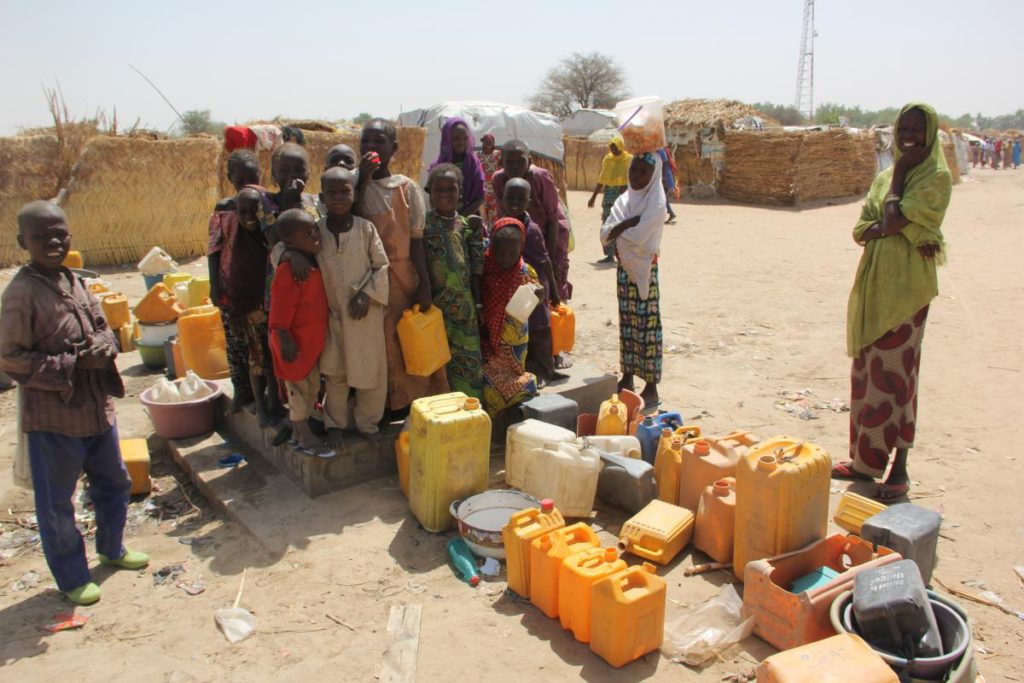As the world commemorates this year’s World Water Day under the umbrella theme set by UN-Water, “Leaving no one behind”, WaterAid Nigeria and the Foundation for Partnership Initiatives in the Niger Delta (PIND) are calling for stronger protections against overuse and misuse of water supply and an acceleration in the provision of sustainable WASH services for all so as to reach everyone and ensure no one is left behind.

To keep advocating and contribute to delivering fair, inclusive and effective access to water across Nigeria, WaterAid and PIND hosted stakeholders from the government and private sector as well as development partners and civil society organisations to a roundtable on sustainable access to and management of inclusive safe water sources.
Lessons learned as well as shared experiences and best practices drawn from water, sanitation and hygiene (WASH) interventions across key stakeholders, it was gathered, will form concrete recommendations into ongoing consultations around the recently launched National WASH Action Plan – a strategy document and guide that came out of the Federal Government’s formal declaration of a State of Emergency in Nigeria’s WASH sector.
The collaboration between PIND and WaterAid in bringing together these various key stakeholders further re-enforces the need for actors in WASH and related sectors, to work together towards improving access to clean water, sanitation and hygiene services, the collaborators disclosed.
Dr ChiChi Aniagolu-Okoye, Country Director, WaterAid Nigeria, says: “This year’s World Water Day theme ‘Leaving no one behind’ could not have been more apt in recognising the reality that marginalised groups – women, children, refugees, indigenous peoples, people with disabilities and the elderly – are often overlooked, and sometimes face discrimination in their quest to access and manage the clean water they need to live daily.
“Even more sad is that most of the people affected live in hard-to-reach communities – riverine, uphill and interior areas that account for a significant percentage of the country’s total population.
“Poor access to clean water, decent toilets and good hygiene simply means lost education, lost opportunities and hundreds of lost lives each year. We cannot let this happen as a country. We must act now and ensure that we protect our precious water supplies for the future, and that we reach everyone with these basic needs, leaving no one behind. This World Water Day, we are more determined than ever to make clean water, decent toilets and good hygiene normal for everyone everywhere, by 2030.”
Dr Dara Akala, Executive Director, Foundation for Partnership Initiatives in the Niger Delta (PIND), says: “The severity of water, sanitation and hygiene needs in Nigeria’s Niger Delta cuts across communities and institutions in urban, peri-urban and rural settings, with largely dysfunctional and non-existent WASH facilities, and polluted water sources. This contributes very highly to WASH related disease burden with consequent health, economic and education impacts.
“Unequal access to water fuelled by a growing demand on water resources and the impact of climate and population changes, traps people in poverty and limits potential.
“The push for economic development must not imperil current and future generations’ access to water. Unless everyone has access to clean water, there can be no sustainable economic development.”
Clean, accessible water for all is an essential part of the world we want to live in and should be normal for everyone, everywhere. Regrettably, the progress made since 2000 in delivering clean water to 1.5 billion people globally is now under threat.
In its 2019 State of the World’s Water report, “Beneath the Surface”, WaterAid warns that the human right to water must take priority ahead of other competing demands otherwise we will be leaving unserved populations behind in the race to get clean water to everyone, everywhere by 2030. Unsustainable production of products for export, combined with consumers’ increasing desire for water-intensive products, may leave poor communities struggling to access clean water. While exports of food and goods are important sources of income, production must be made sustainable, and industrial and agricultural use of water should not be prioritised over people’s ability to get water for their basic needs.
